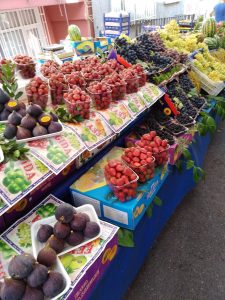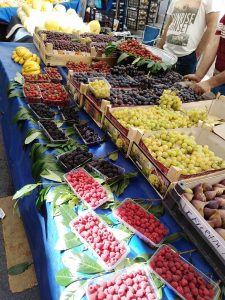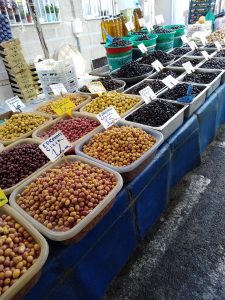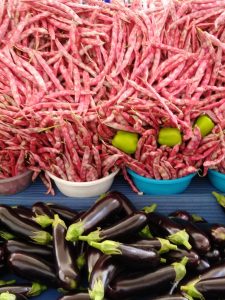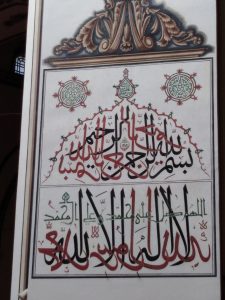
With deep gratitude to Liebentritt Faculty Development Award last year that funded my visit to Istanbul- a gateway to a magical spiritual, linguistic, and sociocultural beautiful city, I’m following up in this blog with a few reflections. Our Arabic program at Loyola takes pride in synthesizing the micro and macro worlds of the teacher and students as they engage critically with the larger communities, target language and culture, and cyclical reflections on self;hence, emphasizing our human need for awareness, education and open-mindedness. Growing horizontally and vertically in learning how to be of service to others via a new language is vital for the Arabic program. Please share with me the few photos and comments to get an authentic glimpse into critical tidbits from Turkey!
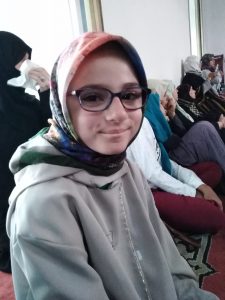
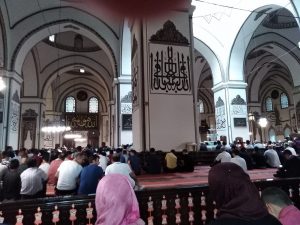
The day of Eid in Bursa was a transformative occasion to witness the nexus of languages, faiths, and cultures. Setting among rows and rows reciting and chanting prayers of peace and love, even though we can’t communicate linguistically, was empowering. The beauty of Arabic calligraphy, of diverse styles and complexities was uplifting. As a teacher and a student of languages, the world is always our classroom, with no boundaries. Here, inside the oldest mosque in Bursa, we can critically reflect on and deeply engage, with empathy and open mindedness, to one’s sense of agency, hybrid identities, cultural sensitivities, and self-improvement. The context encourages collective and individual explorations of concepts of civic engagement, venues of support and challenges, and community development across nations. The process or unlearning, redefining ourselves in connection to other communities and cultures, and promoting social change is a disciplinary of respect and professionalism in listening and being of service to self and others.
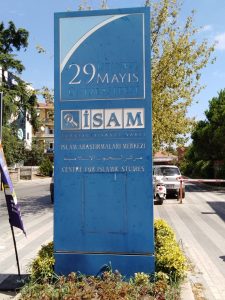
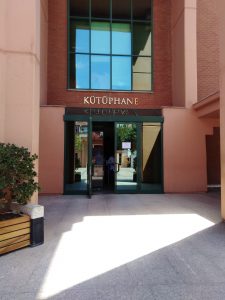
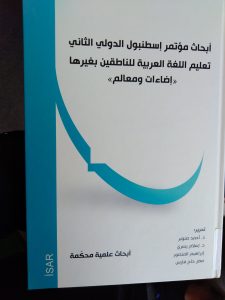
My next stop is at the famous Center if Islamic studies in the Asian side of Istanbul with its known library- ” Can you read the Arabic kutub– remember that there are many Arabic based vocabulary in Turkish!” The library is free of charge, even for visitors and has volumes of Arabic books and manuscripts, old and new. Try reading some of the titles below!
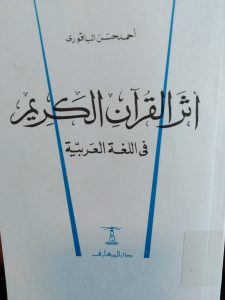
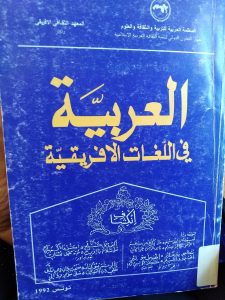
The focus of our Loyola Arabic program is to connect classroom work and community-based service and learning into a constructive coordinated dual relationship whereby world learning becomes a tool into every classroom language and content learning experience, and vice versa.
Ultimately, both learning contexts will enrich each other and triangulate with students’ own application and integration of larger personal and global learning goals.
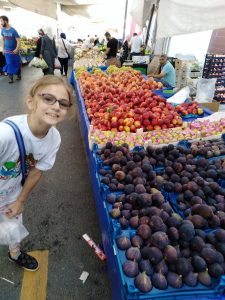
‘Learners without borders,’ is who we are at Arabic-Loyola! I’ll leave you with my last few photos in Istanbul Grocery markets- a weekly street wide event that is colorful, delicious, and surely joyful! I hope the photos brings in the cravings for fresh vegetables ( pink beans- can you believe it?!) and fruit. Observing merchants’ cries, price negotiations, lady’s crochets, and of course my mixed Arabic/ broken Turkish ways of buying are unforgettable! I walk into the footsteps of my own students’ in their interactive engagement with Arabic of diverse levels and orientations, and learning to fail, to forget, to mispronounce, to seek help and to set limits. It was very humbling to share experiences, setbacks, challenges, and the value of belief in excellence, gratitude, and humility.
